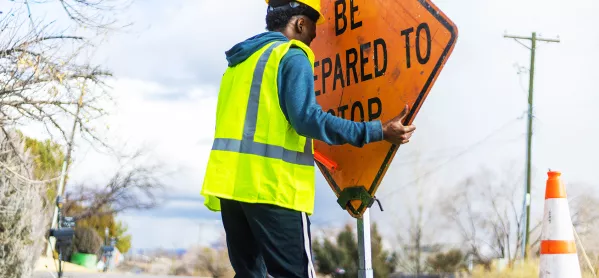- Home
- Leadership
- Compliance
- Schools ending PFI contracts: it pays to plan ahead
Schools ending PFI contracts: it pays to plan ahead

The role of private finance initiative (PFI) contracts has been in the spotlight recently, with schools facing rising costs linked to inflation for contracts with external firms covering everything from boiler maintenance to CCTV systems and even grass cutting.
Beyond the headlines, though, it is worth noting that Philip Hammond, when he was chancellor, ended PFI schemes in 2018, and most deals, which typically last 25 to 30 years, are now reaching the end of their life, leaving schools with the possibility to negotiate new agreements for key services in the years ahead.
Greater freedom on choosing commercial deals could help to save schools money but there are some key questions to consider.
PFI contracts: big questions for schools
What does the contract say?
The first thing schools must do is understand what a contract actually states about how and when it will end.
Many contracts are lengthy and complicated, so deciphering them will not be easy. Thankfully, more recent versions were subject to some form of standardisation and are therefore more helpful to the public sector customer than earlier iterations.
But, nevertheless, these contracts vary hugely and contain a range of handback provisions. These typically relate to the expected condition of assets, which could include electrical and heating systems, flooring and fixed furniture, when they are transferred from the PFI contractor back to the school. These assets may require further maintenance or replacement if they are not up to the required standard as per the contract terms.
- PFI deals: End of school contracts could spark “serious disruption”
- Contracts: Schools “cost 40 per cent more to build under PFI”
- Costs: £8K for a blind, £2K for a tap - schools’ PFI deals
School leaders should make sure that they are up to speed on what the PFI contract does, and does not, say about expiry, so there are no unexpected shocks.
There can be huge financial and opportunity costs arising from inadequate handback of a facility, so the importance of this can’t be overstated.
The PFI contract doesn’t end for years - surely it’s not urgent?
The Infrastructure and Projects Authority recommends that planning for PFI expiry should start seven years in advance.
Even on the assumption that this is a slightly conservative estimate, public sector customers should certainly be looking in detail at a PFI exit strategy at least five years before planned expiry.
This should involve not only consideration of the PFI terms as above but also future plans for assets and replacement of the services that a school receives under the existing agreement.
Given that most deals were struck many years ago, requiring an operator to hand back facilities geared towards the requirements and curriculum of the early 2000s may be pointless, if the next 20 years will present very different challenges.
If a gas boiler is nearing the end of its life, for example, the contractor may automatically replace this with another boiler without consideration of a school’s net-zero ambitions. By starting the handback process earlier, these conversations can happen sooner and perhaps enable the contractor to replace the boiler with a ground-source heat pump instead.
Could partnerships endure?
With PFIs coming to an end and unlikely to be repeated, the incentive for operators as they exit the market is to close their deals with as little cost and risk as possible.
It may, therefore, take active management by schools to hold operators to their deals until the day they end - again underlining the importance of close reading of contracts.
However, there could be opportunities for “win-wins”.
For example, it may be that an operator is obliged to undertake some form of lifecycle maintenance in the final years of the contract for an ageing boiler.
In today’s world, with heat pumps and net-zero targets, it may be that investments are better directed at improved insulation rather than, say, a new boiler - an appliance that a school may wish to phase out entirely.
The devil, as ever, will be in the detail.
Schools and trusts need to ensure that they fully understand the terms of any PFI contract they have and put in place a road map for their future requirements, so they can attempt to end a PFI on their terms - and in the spirit of partnership that was always the intent of PFI when it was first envisaged.
Craig Elder is partner in the government team at law firm Browne Jacobson
For the latest education news and analysis delivered directly to your inbox every weekday morning, sign up to the Tes Daily newsletter
Register with Tes and you can read two free articles every month plus you'll have access to our range of award-winning newsletters.
Keep reading with our special offer!
You’ve reached your limit of free articles this month.
- Unlimited access to all Tes magazine content
- Save your favourite articles and gift them to your colleagues
- Exclusive subscriber-only stories
- Over 200,000 archived articles
- Unlimited access to all Tes magazine content
- Save your favourite articles and gift them to your colleagues
- Exclusive subscriber-only stories
- Over 200,000 archived articles



